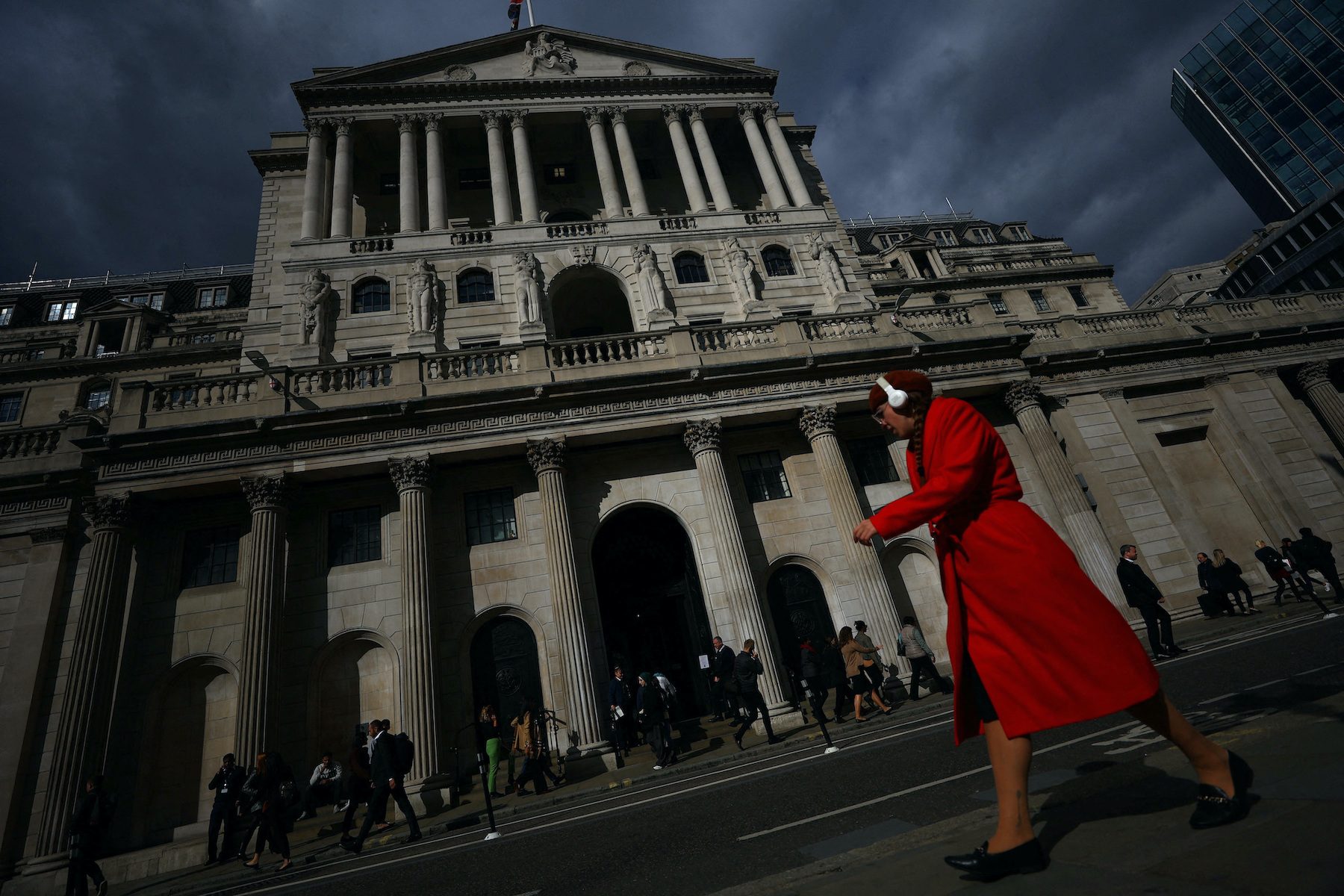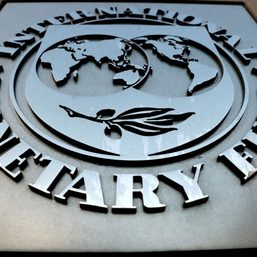SUMMARY
This is AI generated summarization, which may have errors. For context, always refer to the full article.

LONDON, United Kingdom – The Bank of England (BoE) sought to ease concerns about this week’s expiry of its program to calm turmoil in the government bond market, announcing on Monday, October 10, new safety net measures including a doubling of the maximum size of its debt buybacks.
After finance minister Kwasi Kwarteng last month triggered a bond market rout with plans for unfunded tax cuts, the BoE said on September 28 that it would temporarily buy up to 5 billion pounds ($5.53 billion) a day of gilts of at least 20 years’ duration.
So far, the BoE has bought far less than the minimum daily limit, but on Monday it said it was taking further steps to ensure the scheme concludes smoothly.
“In the final week of operations, the bank is announcing additional measures to support an orderly end of its purchase scheme,” the British central bank said in a statement.
The BoE has so far offered to buy up to 40 billion pounds’ worth of gilts but has only bought about 5 billion pounds.
“The bank is prepared to deploy this unused capacity to increase the maximum size of the remaining five auctions above the current level of up to 5 billion pounds in each auction,” the statement said.
The maximum auction size would be set at up to 10 billion pounds in Monday’s operation although the central bank reserved the right to reduce offers.
The gilts market dropped after the announcement, and yields rose across all maturities, as investors fretted about how the BoE would eventually sell these recent buybacks.
“The market wants their intervention to be as little as possible because that means there is less to unwind eventually,” Simeon Willis, chief investment officer at consultancy XPS Pensions Group, said.
The BoE also said it would launch a temporary expanded collateral repo facility to help banks ease liquidity pressures facing client funds caught up in the turmoil, which threatened pension funds.
The liquidity insurance operations would run beyond the end of this week and would accept a wider range of collateral than usual, including corporate bonds, the bank said.
In a third move, the BoE said it was prepared to support further easing of liquidity pressures facing liability-driven investment funds through its regular Indexed Long Term Repo operations each Tuesday.
The sharp sell-off in British government bonds after Kwarteng’s “mini-budget” sparked a scramble for cash by Britain’s pension funds which had to post emergency collateral in LDIs.
The Financial Conduct Authority has asked trading platforms for UK government bonds and related assets to tell it in real time about any marked deterioration in market conditions, according to a source familiar with Britain’s market regulator.
Kwarteng said on Monday he would bring forward his medium-term fiscal plan, including an explanation of how the tax cuts will be paid for, to October 31 from November 23, with independent budget forecasts to be published the same day.
The earlier date will allow the BoE to understand the government’s tax and spending plans before it announces its next interest rate decision on November 3.
Antoine Bouvet, a strategist at ING, said low take-up of the BoE’s facility so far suggested that risk reduction by pension funds had been limited to date, and the central bank wanted to show it could deploy more support.
Impaired
Yields on British 20- and 30-year gilts jumped by almost a quarter of a percentage point on Monday. They were still below the heights seen at the worst of the market rout triggered by Kwarteng’s mini-budget but were set to add to a recent run of daily increases.
“The closer we get to Friday the more gilts will sell off,” Bouvet said. “The bigger picture here is that the functioning of the gilt market is still impaired…. Ultimately if we see another jump in volatility we could see the bank step in.” – Rappler.com
$1 = 0.9035 pounds
Add a comment
How does this make you feel?





![[ANALYSIS] Time to take the contrarian side](https://www.rappler.com/tachyon/2024/07/thought-leaders-time-to-take-the-contrarian-side-072520224.jpg?resize=257%2C257&crop=452px%2C0px%2C1080px%2C1080px)
![[ANALYSIS] Every inch of the market’s climb is a battle now but may soon prove better](https://www.rappler.com/tachyon/2024/07/thought-leaders-market-climb-battle.jpg?resize=257%2C257&crop=324px%2C0px%2C720px%2C720px)

![[ANALYSIS] A new advocacy in race to financial literacy](https://www.rappler.com/tachyon/2024/04/advocacy-race-financial-literacy-April-19-2024.jpg?resize=257%2C257&crop_strategy=attention)
![[ANALYSIS] Search for stocks that continue to sizzle](https://www.rappler.com/tachyon/2024/04/search-stocks-that-sizzle-April-5-2024.jpg?resize=257%2C257&crop_strategy=attention)



![[EDITORIAL] US Supreme Court on Trump’s immunity: Punyal sa puso ng Amerika](https://www.rappler.com/tachyon/2024/07/animated-trump-scotus-presidential-immunity-carousel.jpg?resize=257%2C257&crop=263px%2C0px%2C720px%2C720px)

There are no comments yet. Add your comment to start the conversation.